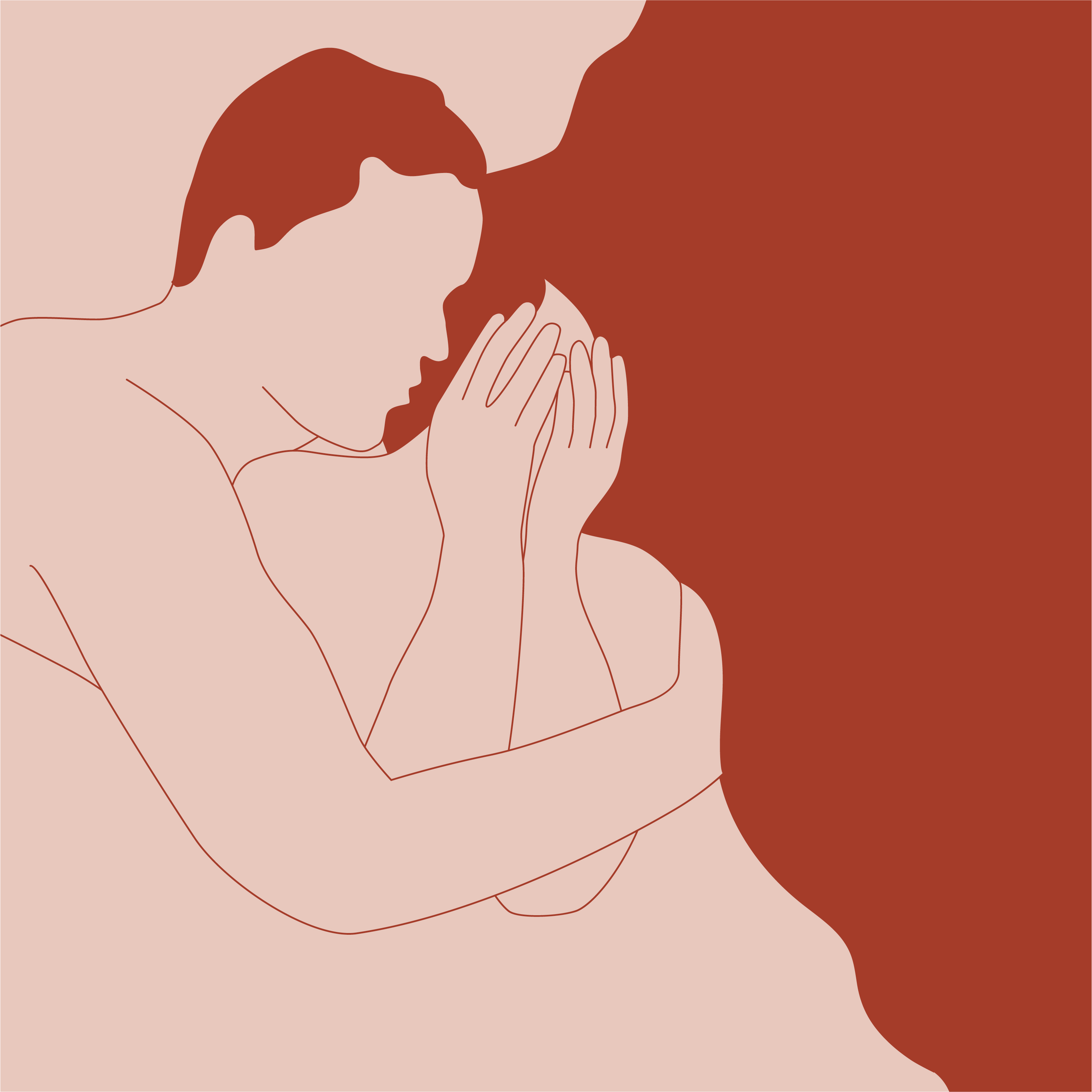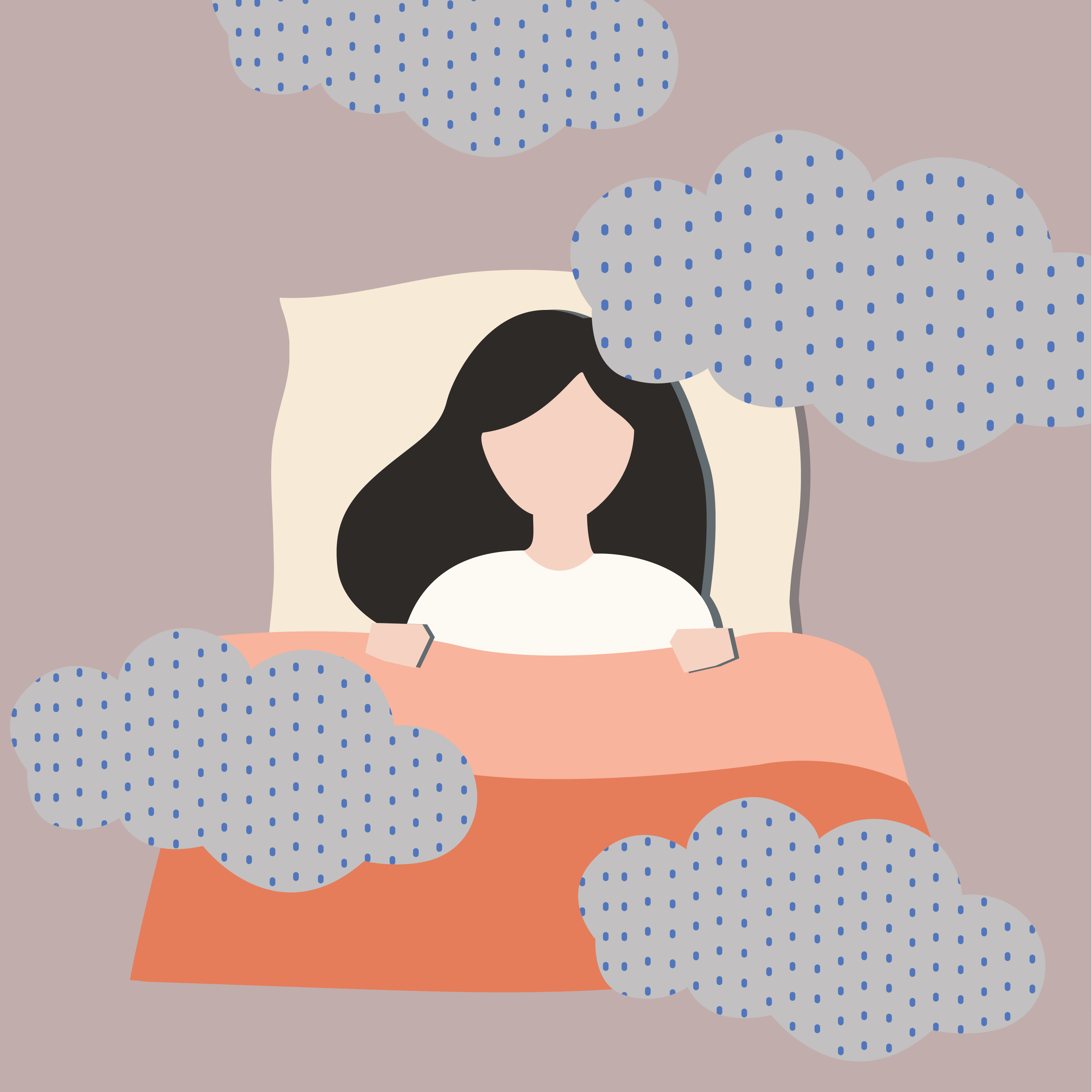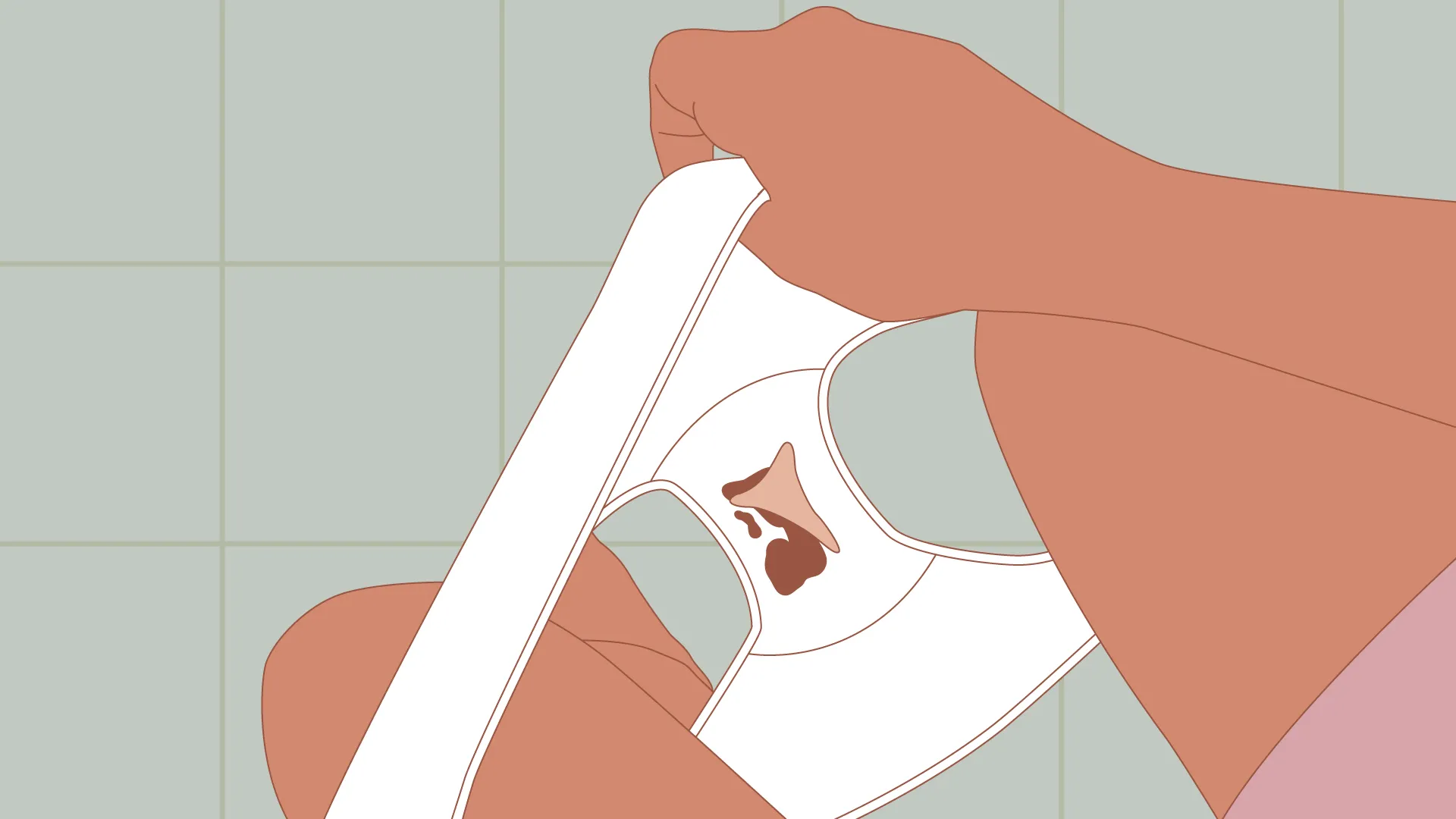May 08, 2025
DECIDUAL CAST PERIODS: WHEN YOUR UTERINE LINING SHEDS AS ONE
Picture this: you're experiencing what feels like typical period cramps, perhaps a bit more intense than usual, when suddenly you pass something that looks alarmingly different from your regular menstrual flow - a triangular or tube-shaped tissue mass that resembles the inside of your uterus. If you've experienced this rare but disconcerting phenomenon, you've likely encountered what is called a ‘decidual cast’.
What is a Decidual Cast?
A decidual cast occurs when the entire uterine lining (endometrium) sheds as one complete piece rather than gradually breaking down and flowing out as it typically would during menstruation. The term 'decidua' refers to the transformed state of the endometrial lining that normally occurs to varying degrees during each menstrual cycle due to hormonal changes, particularly progesterone. While complete decidualisation typically happens during pregnancy to support a developing embryo, partial decidualisation occurs in every menstrual cycle. When hormonal fluctuations cause this lining to shed intact, it often resembles the shape of the uterine cavity, which can be roughly triangular, tubular, or irregularly shaped depending on individual anatomy and how the tissue passes through the cervix. The unusual appearance of this tissue can be alarming and sometimes causes people to worry they've had a miscarriage, even though most decidual casts occur in individuals who are not pregnant. It's important to note that while alarming, decidual casts are relatively rare and often benign. In rare cases where someone is actually pregnant, passing a decidual cast would typically indicate a pregnancy loss and requires immediate medical attention. However, understanding what causes them and when to seek medical attention can help ease anxiety if you ever encounter this situation.
Why do Decidual Casts happen?
Several factors can contribute to the formation and passing of a decidual cast:
- Hormonal contraception: Sudden changes in hormonal contraception, especially progesterone-only contraceptives, are the most common triggers. Starting, stopping, or changing hormonal contraceptives can sometimes cause this reaction.
- Pregnancy-related changes: In some cases, a decidual cast may be associated with an ectopic pregnancy, where the fertilised egg implants outside the uterus, typically in a fallopian tube.
- Hormonal imbalances: Conditions that affect your hormone levels, such as polycystic ovary syndrome (PCOS) or endometriosis, may increase the likelihood of experiencing a decidual cast.
- Inflammatory conditions: Certain infections or inflammatory processes affecting the reproductive system can occasionally contribute to this phenomenon.
Recognising the symptoms
Before passing a decidual cast, you might experience:
- Severe cramping or pelvic pain (often more intense than typical period pain)
- Nausea or vomiting due to pain intensity
- Heavy bleeding before or after passing the tissue
- A feeling of pressure or fullness in the lower abdomen
- The cast itself usually appears as a pinkish or reddish tissue mass with a triangular or tubular shape, sometimes with a hollow centre. The size can vary but typically ranges from 3 to 10 centimetres.
When to seek Medical Attention
While passing a decidual cast is often not dangerous in itself, certain circumstances warrant immediate medical attention:
- Severe Pain: If you're experiencing debilitating pain that doesn't respond to over-the-counter pain relief
- Heavy Bleeding: Soaking through pads or tampons hourly for several consecutive hours
- Signs of Infection: Fever, unusual discharge, or a foul odour
- Pregnancy Symptoms: If you've had a positive pregnancy test or suspect you might be pregnant
- Recurrence: If you've experienced multiple decidual casts
Even if you're not experiencing these symptoms, it's still advisable to consult with your healthcare provider after passing a decidual cast. They may want to examine the tissue or recommend further evaluation to rule out any underlying conditions.
The Emotional Impact
Beyond the physical experience, passing a decidual cast can be emotionally jarring. The unexpected sight of tissue during what you thought would be a regular period can trigger fear, confusion, and anxiety. Some people report feeling traumatised or developing anxiety around future periods after experiencing a decidual cast. If you've had this experience, remember that your feelings are valid. Consider speaking with a professional if you find yourself experiencing persistent anxiety or distress related to the event.
Moving Forward: Self-Care and Prevention
While decidual casts aren't entirely preventable, some strategies may help minimise your risk:
- Gradual hormonal changes: If you're starting or stopping hormonal contraceptives, discuss with your GP the possibility of transitioning gradually to minimise dramatic hormonal fluctuations.
- Regular Health Monitoring: Schedule check-ups with your GP if you notice changes in your cycle, to help monitor any underlying conditions that might contribute to hormonal imbalances.
- Tracking Symptoms: Keep a detailed record of your menstrual cycles, including any unusual symptoms or patterns, to share with your healthcare provider.
- Stress Management: While not directly linked to decidual casts, chronic stress can impact hormonal balance. Practices like meditation, adequate sleep, and regular exercise support overall hormonal health.
Breaking the Silence
Like many aspects of menstrual health, decidual casts aren't widely discussed, leaving many who experience them feeling isolated or abnormal. By sharing information and normalising conversations about these experiences, we can help everyone understand their bodies better and recognise when to seek appropriate care.
If you've experienced a decidual cast, know that you're not alone, even if it feels like a singular experience. Your body is complex, and sometimes it responds to hormonal shifts in unexpected ways. With professional guidance and self-compassion, you can navigate this rare but manageable menstrual phenomenon with greater confidence and less fear.
Anything else? Essity Australasia makes no warranties or representations regarding the completeness or accuracy of the information. This information should be used only as a guide and should not be relied upon as a substitute for professional, medical or other health professional advice.
Blogs

Jun 08, 2022
EXPLORING PERIOD CARE IN CULTURES AROUND THE WORLD
Our TOM Talks panelist Sabina McKenna explores how different cultures around the world approach period care.
Read More
Jun 08, 2022
STOP APOLOGISING FOR HAVING YOUR PERIOD
Our TOM Talks panelist Mel Mason talks about the importance of not apologising for having your period.
Read More
Jun 07, 2022
STRESSED? NOT SLEEPING? TRYING TO CONCEIVE?
TOM Talk's panelist Georgia Hartmann discussed the links between stress, sleep and fertility.
Read More
Jun 07, 2022
STRESS AND HOW IT AFFECTS YOUR SEX DRIVE
Certified sex coach Georgia Grace is here to unpack the link between stress and sex.
Read More
